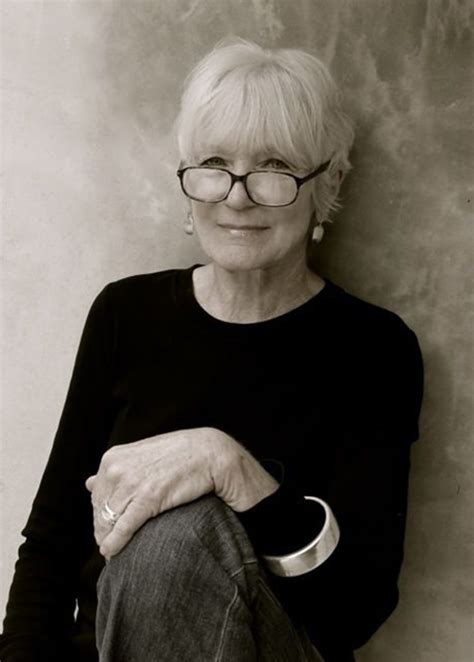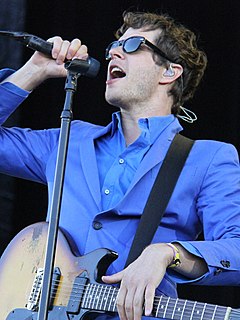A Quote by Sheila Heti
When you're writing, I think a big part of writing comes out of an attempt to understand yourself. You're dealing with emotions and thoughts that are native to you. So that probably winds up in your characters.
Related Quotes
Do not beat up on yourself. Do not criticize your writing as lousy, inadequate, stupid, or any of the evil epithets that you are used to heaping on yourself. Such self-bashing is never useful. If you indulge in it, your writing doesn't stand a chance. So when your mind turns on you, turn it back, stamp it down, shut it up, and keep writing.
David Foster Wallace is a big idol of mine. His writing is so clear that for years I'd read him and think, My God, he is actually writing the way I think. He's describing the thoughts in my head. And then I realized, No, wait. He's just such a good writer, so transparent and articulate, that when he describes his thoughts, I think they're my own.
I love that "furious and gorgeous barrage." That helps me see the relation between the introduction and the book's final section, where writing about a fire (and about the attempt to understand the event), also becomes an attempt to understand how writing might get closer to the fire, in so many ways.
I think anybody who is writing finds he puts a little bit of himself in all of the characters, at least in this kind of a strip. It's the only way that you can survive when you have to do something every day. You have to put yourself, all of your thoughts, all of your observations and everything you know into the strip.
So the fact that there's someone who's planning what happens to the characters, writing it down, means that the characters always have a fate. And when we think about fate, we tend think of it as the thing we would have if we were literary characters, that is, if there were somebody out there, writing us.
I've quit writing screenplay [adaptations]. It's too much work. I don't look at writing a novel as work, because I only have to please myself. I have a good time sitting here by myself, thinking up situations and characters, getting them to talk - it's so satisfying. But screenwriting's different. You might think you're writing for yourself, but there are too many other people to please.
I still encourage anyone who feels at all compelled to write to do so. I just try to warn people who hope to get published that publication is not all it is cracked up to be. But writing is. Writing has so much to give, so much to teach, so many surprises. That thing you had to force yourself to do - the actual act of writing - turns out to be the best part. It's like discovering that while you thought you needed the tea ceremony for the caffeine, what you really needed was the tea ceremony. The act of writing turns out to be its own reward.
I think the success of every novel - if it's a novel of action - depends on the high spots. The thing to do is to say to yourself, 'Which are my big scenes?' and then get every drop of juice out of them. The principle I always go on in writing a novel is to think of the characters in terms of actors in a play. I say to myself, if a big name were playing this part, and if he found that after a strong first act he had practically nothing to do in the second act, he would walk out. Now, then, can I twist the story so as to give him plenty to do all the way through?





































